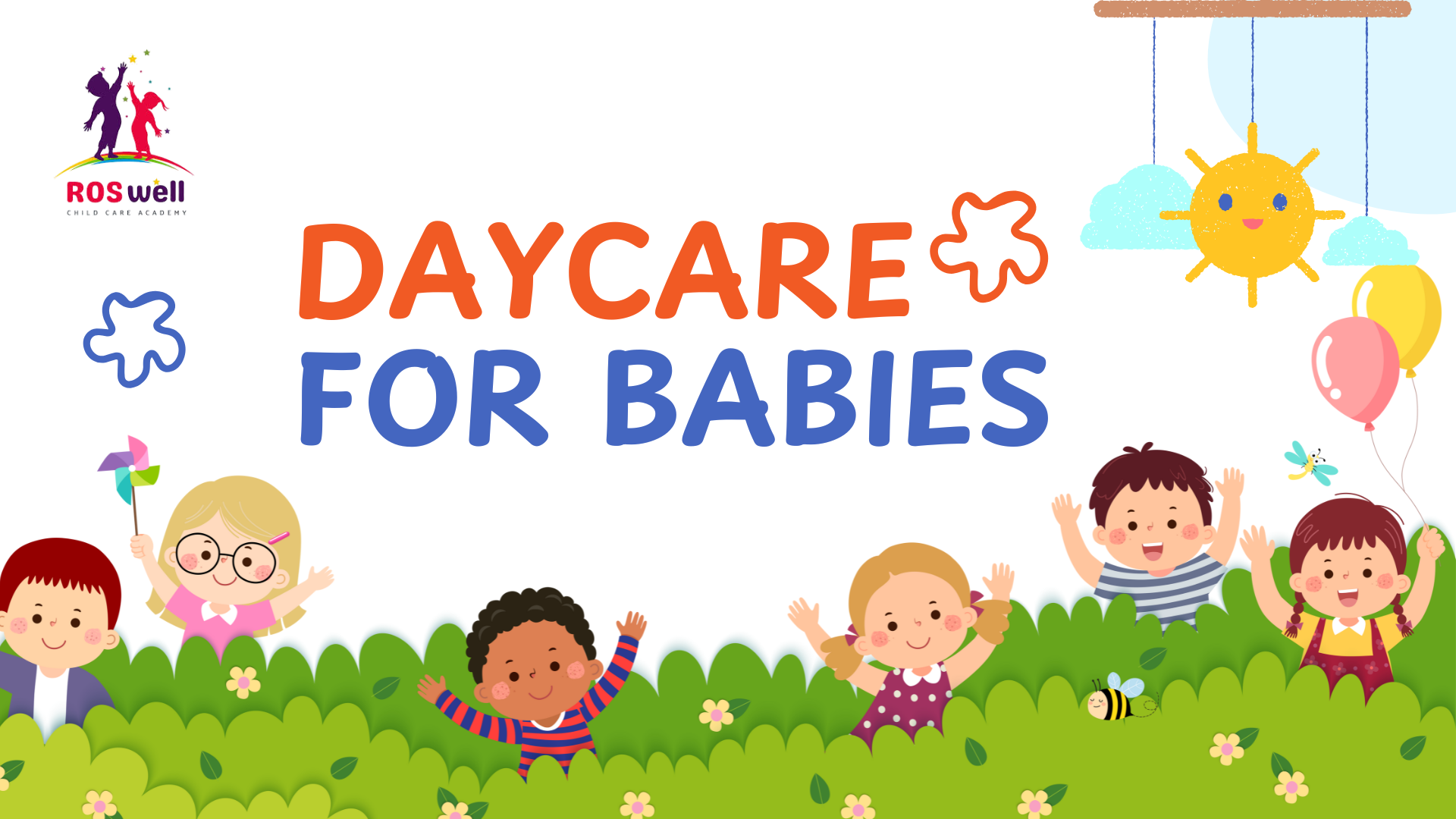- Email: roswellchildcareacademy@gmail.com
- Phone: 470-282-1521

One of the most emotional and significant decisions parents make is selecting a daycare for babies for their infants. Although it might appear to be merely a place for your child to stay while you are at work, there is more to it than that. In addition to offering supervision, a good daycare nurtures, instructs, and plays a vital role in forming early development. This article explains why choosing the right daycare for babies is more important than you might think and what to look for when choosing the ideal setting for your child’s care.
Daycare for babies refers to a professionally managed setting designed to care for infants and toddlers, typically aged 6 weeks to 18 months. These centres focus on age-appropriate development through interaction, routine, and play-based learning, all while ensuring safety, hygiene, and proper nutrition.
The first few years of life are critical for brain development. The right daycare for babies introduces babies to sensory activities, social cues, and language exposure, setting a foundation for future learning and behaviour.
High-quality daycare encourages bonding, emotional regulation, and peer interaction. Babies who attend structured care often learn early skills like sharing, comfort seeking, and reacting positively to others.
Establishing a predictable routine helps babies feel secure. The right daycare offers structured naps, feeding times, and play sessions that support emotional well-being and developmental consistency.
Well-trained, compassionate caregivers are key. Look for centres where staff are CPRcertified, experienced with infants, and where the caregiver-to-baby ratio is low (ideally 1:3 or less).
The daycare should be baby-proofed, sanitized frequently, and have clear protocols for sick children. Safety gates, covered outlets, and clean changing areas are non-negotiables.
A good daycare for babies doesn’t just babysit it stimulates. Activities should include tummy time, music exposure, story sessions, and soft motor-skill games designed specifically for infants.
Trustworthy centers provide daily reports, live video feeds, or apps to keep parents updated on naps, feedings, and milestones. Consistent communication builds peace of mind.
A center may be fantastic but if it adds hours to your commute, it can become a stressor. Prioritize quality but balance it with location practicality.
Sometimes the best daycare isn’t just the cleanest or most expensive—it’s the one that feels right. Visiting a few places can help you assess the emotional atmosphere and how caregivers interact.
Always ask for parent references and ensure the daycare is licensed and follows local childcare regulations.
Quality daycare for babies not only supports children but also enables parents to focus on their careers with confidence. Reliable care means fewer sick days, less anxiety, and better work-life balance.
Daycares also offer social connection opportunities for new parents a community of people navigating similar stages of life.
While cost is often a concern, it’s important to view daycare as an investment rather than an expense. Many studies show that children who receive quality care in early years perform better in school and build stronger emotional resilience.
A well-chosen daycare for babies does more than just provide supervision. It creates a nurturing environment where infants can begin to develop important social, emotional, and cognitive skills. From sensory activities to simple interactions with other babies, these early experiences foster healthy development and prepare your child for preschool settings. Experienced caregivers help stimulate early language, fine motor skills, and emotional bonding making the daycare experience a foundational stepping stone in your baby’s growth.
Choosing the right daycare for babies means trusting others with your most precious person. It’s a decision that deserves research, intuition, and thoughtful questions.
When evaluating your options, also consider smaller in-home centres and daycares Roswell residents recommend, especially if you’re located in that area. These local choices often provide personalized care and strong community ties.
Remember, every family and baby is different. What matters most is finding a safe, loving, and enriching environment where your baby can thrive.
Most daycares accept babies starting at 6 weeks old. However, many parents choose to start around 3–6 months, depending on personal comfort and work needs.
Signs of a good adjustment include calm behavior during drop-off, normal eating and sleeping habits, and happy interaction with caregivers.
Yes. Part-time daycare allows flexibility and can be a great introduction for babies who need social exposure without full-day care.
Absolutely. Structured activities, interaction with peers, and exposure to language-rich environments support early brain development and learning.
Comments are closed